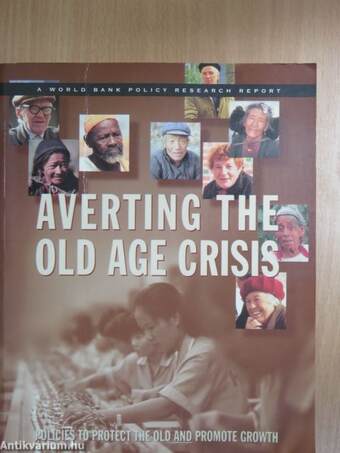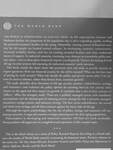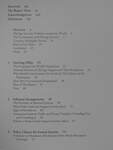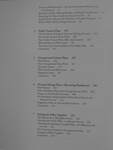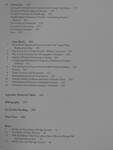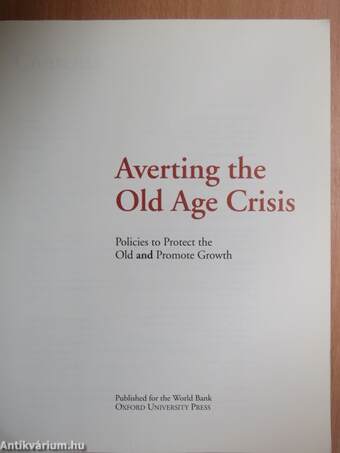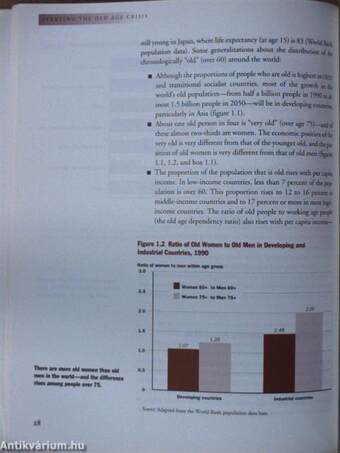1.116.679
kiadvánnyal nyújtjuk Magyarország legnagyobb antikvár könyv-kínálatát
Averting the Old Age Crisis
Policies to Protect the Old and Promote Growth/A World Bank Policy Research Report
| Kiadó: | Oxford University Press |
|---|---|
| Kiadás helye: | Oxford |
| Kiadás éve: | |
| Kötés típusa: | Ragasztott papírkötés |
| Oldalszám: | 402 oldal |
| Sorozatcím: | |
| Kötetszám: | |
| Nyelv: | Angol |
| Méret: | 24 cm x 19 cm |
| ISBN: | 0-19-520996-6 |
| Megjegyzés: | Néhány színes ábrával. |
naponta értesítjük a beérkező friss
kiadványokról
naponta értesítjük a beérkező friss
kiadványokról
Fülszöveg
«5®
THE WORLD BANK
THE WORLD IS APPROACHING AN OLD AGE CRISIS. As life expectancies increase and birthrates decline, the proportion of the population that is old is expanding rapidly, swelling the potential economic burden on the young. Meanwhile, existing systems of financial secu-rity for old people are headed toward collapse. In developing countries, urbanization, increased mobility, famine, and war are eroding extended families and other traditional means of support. In industrial countries, escalating costs threaten to overwhelm public pen-sion plans—even as these plans frequently impede overall growth. Nations developing formai old age security systems risk repeating the industrial countries' costly mistakes.
This book sounds the alarm about this potential crisis and seeks to provide answers to urgent questions: How can financial security for the old be ensured? What are the best ways of paying for such security? What role should the public and priváté sectors play? Can... Tovább
Fülszöveg
«5®
THE WORLD BANK
THE WORLD IS APPROACHING AN OLD AGE CRISIS. As life expectancies increase and birthrates decline, the proportion of the population that is old is expanding rapidly, swelling the potential economic burden on the young. Meanwhile, existing systems of financial secu-rity for old people are headed toward collapse. In developing countries, urbanization, increased mobility, famine, and war are eroding extended families and other traditional means of support. In industrial countries, escalating costs threaten to overwhelm public pen-sion plans—even as these plans frequently impede overall growth. Nations developing formai old age security systems risk repeating the industrial countries' costly mistakes.
This book sounds the alarm about this potential crisis and seeks to provide answers to urgent questions: How can financial security for the old be ensured? What are the best ways of paying for such security? What role should the public and priváté sectors play? Can systems be used to enhance, rather than detract from, economic growth?
The study identifies three functions of old age security systems—redistribution, savings, and insurance—and evaluates the policy options for meeting these by two criteria: their impact on the aged and their impact on growth. It concludes that a mix of three systems, or "pillars," offers the strongest result. These are: a publicly managed system with mandatory participation and the limited goal of reducing poverty among the old; a privately managed, mandatory savings system; and voluntary savings. The first covers redistribution, the second and third cover savings, and all three coinsure against the many risks of old age.
Although the report acknowledges that the mix of pillars, timing, and transition will vary among countries, it urges all countries to begin planning now for their aging populations.
Policymakers in developing and industrial countries will find this book invaluable. Nonspecialists will appreciate its straightforward exposition of this complex topic.
This is the third volume in a series of Policy Research Reports that bring to a broad audi-ence the results of World Bank research on pressing development issues. Previous volumes in the series are The East Asian Miracle: Economic Growth and Public Policy and Adjustment in
Africa: Reforms, Results, and the RoadAhead. Vissza
Témakörök
- Szociológia > Társadalmi csoportok > Életkor szerint > Idősek
- Szociológia > Szociálpolitika > Életszínvonal
- Közgazdaságtan > Gazdaságpolitika
- Közgazdaságtan > Pénzügy > Egyéb
- Idegennyelv > Idegennyelvű könyvek > Angol > Szociológia > Társadalmi csoportok > Életkor szerint > Idősek
- Idegennyelv > Idegennyelvű könyvek > Angol > Szociológia > Szociálpolitika > Életszínvonal
- Idegennyelv > Idegennyelvű könyvek > Angol > Közgazdaságtan > Gazdaságpolitika
- Idegennyelv > Idegennyelvű könyvek > Angol > Közgazdaságtan > Pénzügy > Egyéb


